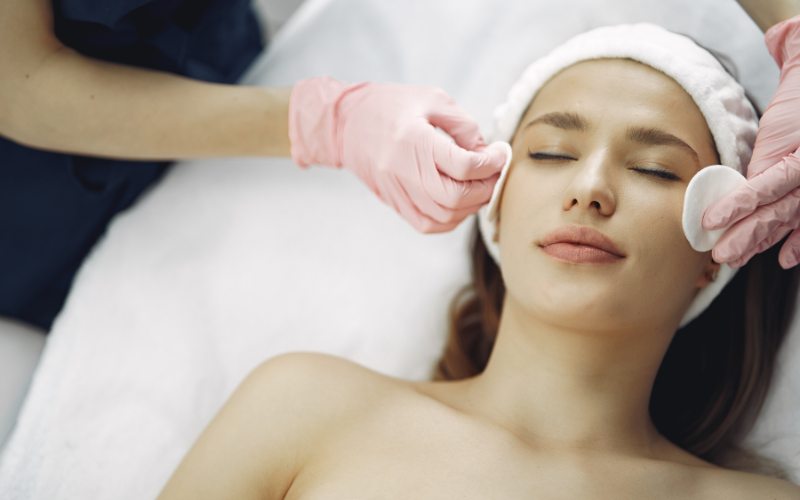The skin barrier, also known as the stratum corneum, is the outermost protective layer of the skin, comprising dead skin cells and natural lipids. It plays a crucial role in keeping the skin hydrated and preventing the entry of bacteria and other harmful agents from the external environment. Join us to learn more about “Skin Barrier” in today’s article!
1 What is the Skin Barrier?
The skin is composed of three primary layers: the epidermis, dermis, and hypodermis. The outermost layer of the skin is the stratum corneum, which resembles a brick wall with dead skin cells acting as bricks. These dead skin cells are held together by a mortar-like layer of essential nutrients, forming the skin barrier.
The skin barrier plays an important role in determining the overall health of the skin. When the skin barrier is compromised, the skin becomes vulnerable to environmental pollutants and harmful substances, leading to inflammation and irritation.
 What is the Skin Barrier?
What is the Skin Barrier?
2 Signs of a Damaged Skin Barrier
Environmental pollution and inappropriate skin care routines are the leading causes of a weakened skin barrier.
The skin barrier is crucial in shielding the skin from harmful external factors and maintaining skin hydration. When the skin barrier is damaged, the skin becomes prone to irritation, dryness, premature aging, and even more severe dermatological issues.
Signs of a compromised skin barrier include:
- Dry, flaky, or itchy skin
- Skin easily irritated by skincare products or cosmetics
- Prone to acne breakouts
- Visible wrinkles and sagging skin
- Sensitivity to sunlight
- Susceptibility to environmental factors such as dust and pollution
 Signs of a Damaged Skin Barrier
Signs of a Damaged Skin Barrier
3 Reasons for a Weakened Skin Barrier
- Environmental Pollution: Smoke, dust, chemicals, and UV rays in polluted environments can destroy the skin barrier.
- Inappropriate Skin Care: Using harsh or unsuitable skincare products can irritate the skin and weaken its protective barrier.
- Overuse of Cosmetics: Thick layers of makeup and chemical-laden cosmetics can clog pores and suffocate the skin, leading to a weakened skin barrier.
- Unhealthy Diet: Lack of essential vitamins and minerals can make the skin fragile and susceptible to damage.
- Stress: Stress can impact the skin’s immune system, making it more vulnerable to damage and a weakened barrier function.
 Reasons for a Weakened Skin Barrier
Reasons for a Weakened Skin Barrier
4 Ways to Restore and Improve the Skin Barrier
- Use gentle skincare products suitable for your skin type
- Apply sunscreen regularly to protect the skin from UV damage
- Ensure proper hydration for the skin
- Maintain a nutritious diet rich in essential nutrients
- Reduce stress through relaxation techniques or stress management strategies
 Ways to Restore and Improve the Skin Barrier
Ways to Restore and Improve the Skin Barrier
If you notice any signs of damaged skin due to a weakened skin barrier, consult a dermatologist for personalized advice and treatment. Take good care of your skin to protect its barrier function and maintain its overall health.
Sensitive Summer Skin Care Tips for Healthy, Redness-Free Skin
 Skin Care Tips for Healthy, Redness-Free Skin’>
Skin Care Tips for Healthy, Redness-Free Skin’>It requires more care to combat dryness and flakiness.

































